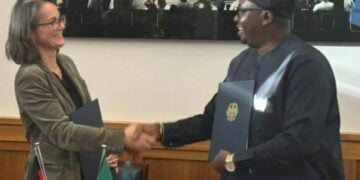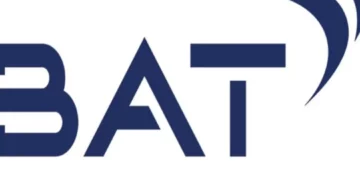Dangote Cement Plc has restated its commitment in supporting Africa’s transformation in bridging infrastructure and housing gap
Cement demand is driven by an increase in population, urbanisation, infrastructure and housing growth. These are key attributes driving the strong demand for cement in Africa. Sub-Saharan Africa is home to over 1.1 billion people. The United Nations estimates that by 2050, the region will have a population of more than 2.1 billion. Two-thirds of this growth will be absorbed by urban areas, which will be home to an additional 950 million people.
The World Bank describes Africa as the fastest growing and youngest region globally. As the population continues to expand, Africa urgently needs infrastructure, housing and commercial buildings. This creates a tremendous opportunity for Dangote Cement.
One of Sub-Saharan Africa’s top developmental challenges continues to be the shortage of physical infrastructure, Dangote Cement said: “as a company, we see the infrastructure development efforts as opportunities to expand the market for our product.
“We are leveraging the Dangote brand, our economies of scale, and efficient production facilities in satisfying the rapidly growing cement demand across all markets. We continue to serve the growing demand through prudent expansion into high growth Sub-Saharan Africa cement markets and growth in existing markets.”
In its response to concrete roads in Nigeria, Dangote Cement said, Dangote Industry Limited constructed one of the longest 43-kilometre-concrete road in Obajana-Kabba, Kogi state, under the Public-Private Partnership (PPP) program. It noted that, over the last few years, attention towards concrete roads has been remarkable; and there is high optimism that this will persist in the coming years across all markets, especially in Africa.
Speaking recently at its 13th annual general meeting held in Lagos, the chairman of Dangote Cement, Aliko Dangote said: “over the last decade, Dangote Cement has recorded exponential growth across all areas. Group volumes are now at almost 30Mta, our capacity has tripled to 51.6Mta and we export cement from five countries across Africa.
“As the volatile global environment propels us into a new era of uncertainties, we are fortunate that the last two years have taught us resilience, adaptability and grit. These values are what we need to face unpredictable times in the future.”
He noted that the company remains the leading cement company in Africa, well-positioned for a positive and sustainable future. We are resolute in transforming Africa, while creating sustainable value for our stakeholders.”
According to Dangote, in 2021, we began operations in our new 3Mta Okpella plant in Edo state, where we are successfully ramping up production and have contributed to creating a new industrial hub. We are actively deploying our alternative fuel strategy across all countries of operations, to optimise energy efficiency, reduce reliance on fossil fuels and ultimately reduce CO2 emission.
“Whilst we focused our efforts on meeting the robust demand of our local market in Nigeria, at the expense of our export markets, we still made significant progress in our cement and clinker exports. In 2021, we exported 7 ships of clinker out of Nigeria and exported cement from five of our operations.
“Our vision is for West and Central Africa to be cement and clinker self-sufficient, while making the regional and continental free trade agreements a reality,” he stressed.
On outlook, Dangote Cement chairman said: “our strategy remains steadfast, focused on organic growth in Nigeria and Pan-Africa, while ensuring that Africa’s regional integration becomes a reality. We will continue to contribute to improving regional trade within Africa by building plants across West and Central Africa, therefore eliminating the need for the importation of cement.”
The chief executive of Dangote Cement, Michel Puchercos stated that “Over the last two years, we have finalised the deployment of six million tonnes of new capacity in Nigeria, Obajana line five and Okpella plant. This expansion supports the increasingly growing demand in our local market, as we prepare for the next phase of growth.
“That said, we are now focused on a less capital-intensive expansion cycle, which includes building grinding plants across West and Central Africa to leverage and strengthen Dangote Cement’s regional integration. We are on track to deploy grinding capacity in Cote d’Ivoire and Ghana over the coming months, which will feed off clinker exported from neighbouring operating countries.”
Also, head, Sustainability, Dangote Cement, Igazeuma Okoroba said: “In continuation of our support of Africa’s urbanisation, we ramped up our investment in infrastructural development in 2021 with several construction projects such as roads in Tombel-Doula, Cameroon, the completion of Nigeria’s longest rigid pavement, the 43km Obajana-Kabba road located in Kogi State and support for the construction of 300,000 homes under the government’s Mass Housing Programme.”
She also said: “our support for industrialisation and entrepreneurship in 2021 was not only demonstrated on a macro scale but also on a micro-scale. We supported the Gateway International Trade Fair, in Ogun state capital, Abeokuta. Similarly, Dangote Cement, Okpella contributed to the creation of the new industrial hub in Edo state, Nigeria. Small and medium scale enterprises in our host communities benefitted through schemes such as the donation of tricycles in Obajana, the Community Youth Empowerment Scheme in Ibese, among others.
She noted that, “as a member of the Global Cement and Concrete Association (GCCA), we join the collective commitment of the world’s leading cement and concrete companies to fully contribute to building the sustainable world of tomorrow. In confirmation of our commitment to climate action and continuous improvement process for reaching sustainability goals in 2021, the Carbon Disclosure Project (CDP) raised the Company’s rating from C to B-.
“We are pleased that our efforts are being recognised locally and globally but we continue to strive to improve on our environmental, social and governance (ESG) processes.”
Dangote Cement has production capacity of 51.6 million tonnes per year across 10 countries in Sub-Saharan Africa. The Group has integrated factories in seven countries, a clinker grinding plant in Cameroon, and import and distribution facilities for bulk cement in Ghana and Sierra Leone. Together, these operations make Dangote Cement the largest and leading cement producer in Sub-Saharan Africa.





